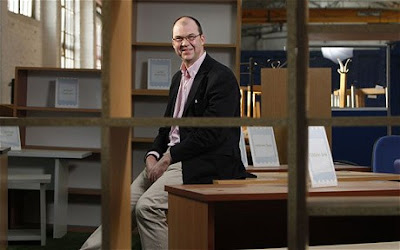 |
| Colin Crooks, CEO at Green-Works, trading for planet and people |
In his piece, Rod mentions a study called "The Consequences of Mandatory Corporate Sustainability Reporting" by Ioannis Ioannou at the London Business School and George Serafeim at the Harvard Business School, which examined the effect of mandatory reporting on several measures of socially responsible management practices in 58 countries.
The authors of the report found that "reporting increases the social responsibility of business leaders; raises the priority of employee training; improves corporate governance; reduces bribery and corruption and increases managerial credibility".
A really interesting comment in the piece was by Teresa Fogleberg, Deputy Chief Executive at Global Reporting Initiative (GRI) who told us, "social issues are running five years behind environmental ones," because it seems that while the corporate world and governments have accepted the need to carry out environmental impact assessments, they are less convinced about the efficacy of social impact assessment.
Why is this when there is so much to be achieved by really getting to grips with social impact, not least real cost reduction? If, for instance, you carry out a social impact study of primary schools where you would say, add not just Sats results, so much in the news of late, but also admission policy, social and ethnic diversity and academic distance travelled for children, then you start to get a real picture of how that school is performing in its socioeconomic setting and decisions about where to target limited resource suddenly become much easier. Social impact assessments do so much more than league tables, and in social enterprise the work we have done for members has directly helped them win more business.
SEL's very experienced in this regard. We've trained countless social enterprises and other organisations in the measuring and recording of their social and environmental impact - it's a field we know well and the demand for consultancy is ever growing. But what's absolutely clear is that in order to make it work organisations need to embed good measurement practice as early as possible into the organisation and/or project, rather than regard impact measurement as a retrospective activity, to be done once a piece of work is complete.
The wonderful SEL member, Green-Works a social enterprise that "trades for planet and people" was also featured in the article. Green-Works is paid to take away old office furniture that it refurbishes and sells. It invests any profit in training hard-to-employ people such as ex-prisoners, the homeless and long-term unemployed. Colin Crooks, its CEO, said, "Every pound we take produces £1.55 in social and environmental benefits, including only a small amount of carbon." All the indicators it uses to assess its social impact are external, as in their return-to-work ratio, the reduction in reoffending etc and, in this way, it knows it saves £5,000 per annum for the state per employee.
This is clever and, although not the stuff of sound bites, it is vital if we are to prioritise investment and ensure the deepest, longest lasting social and environmental returns.

No comments:
Post a Comment